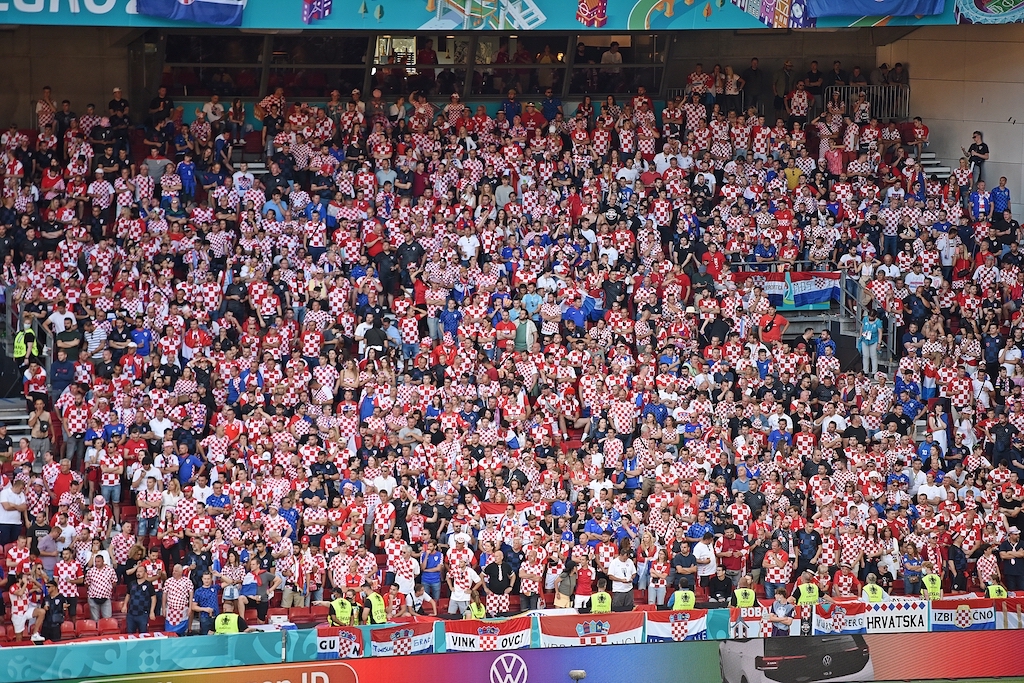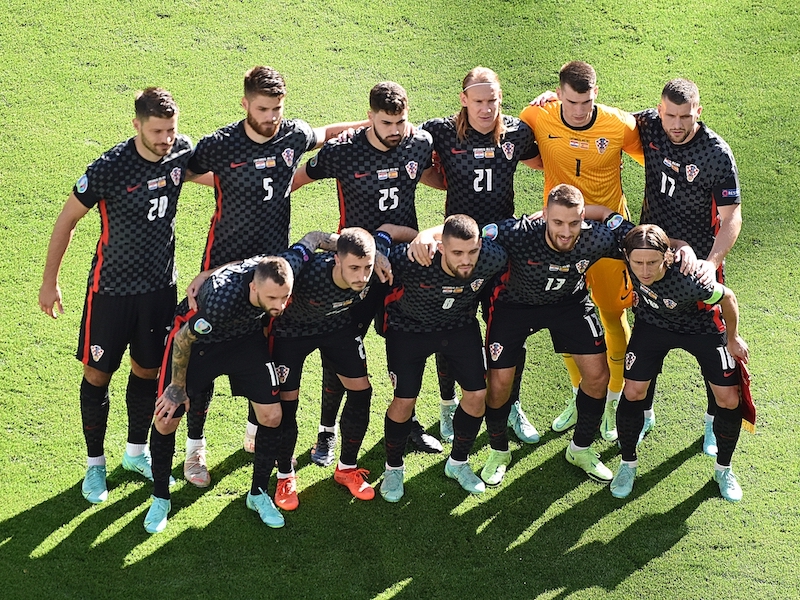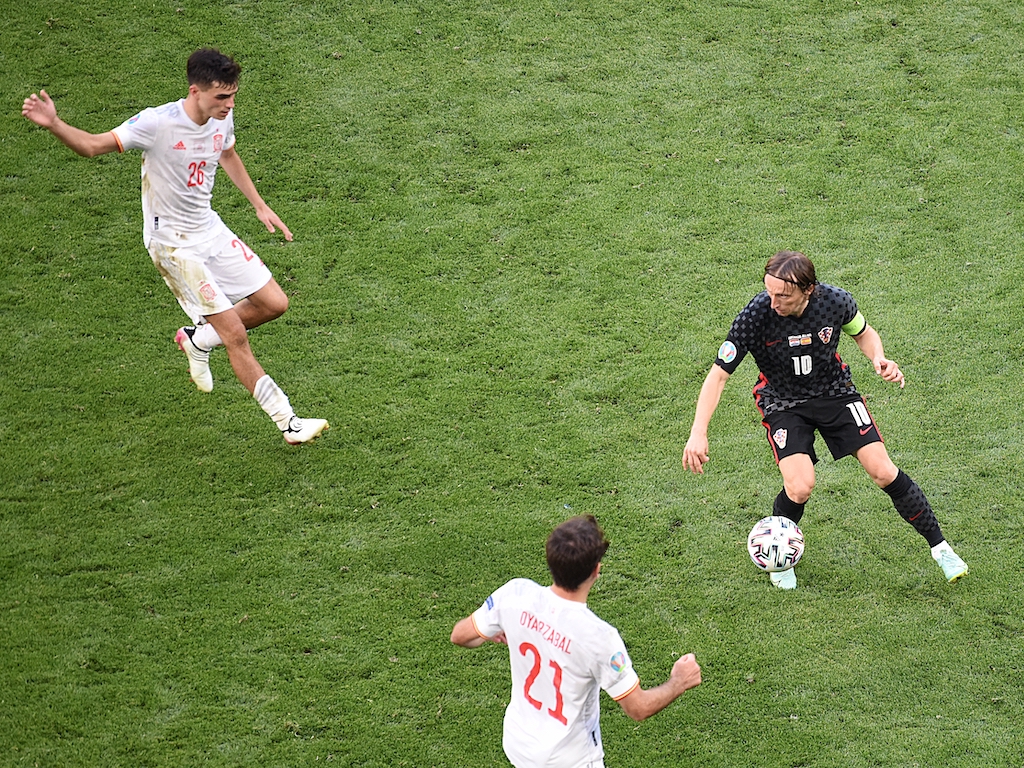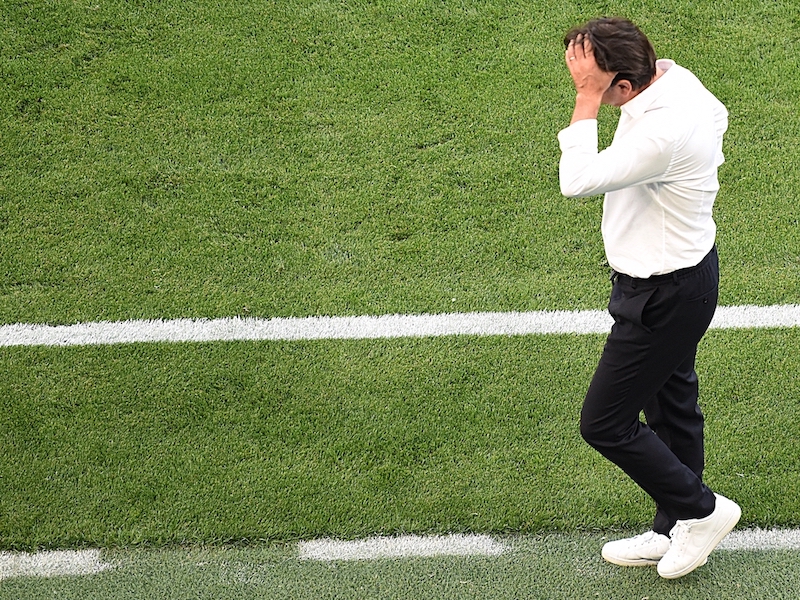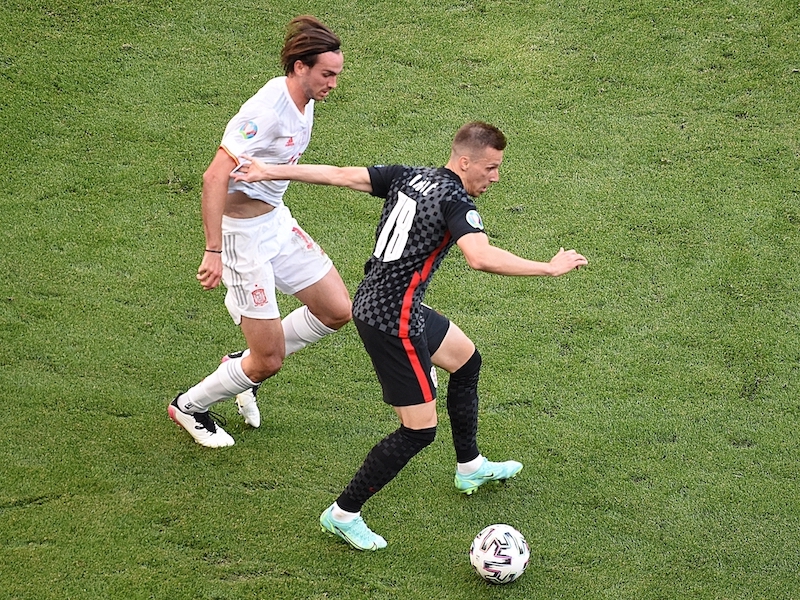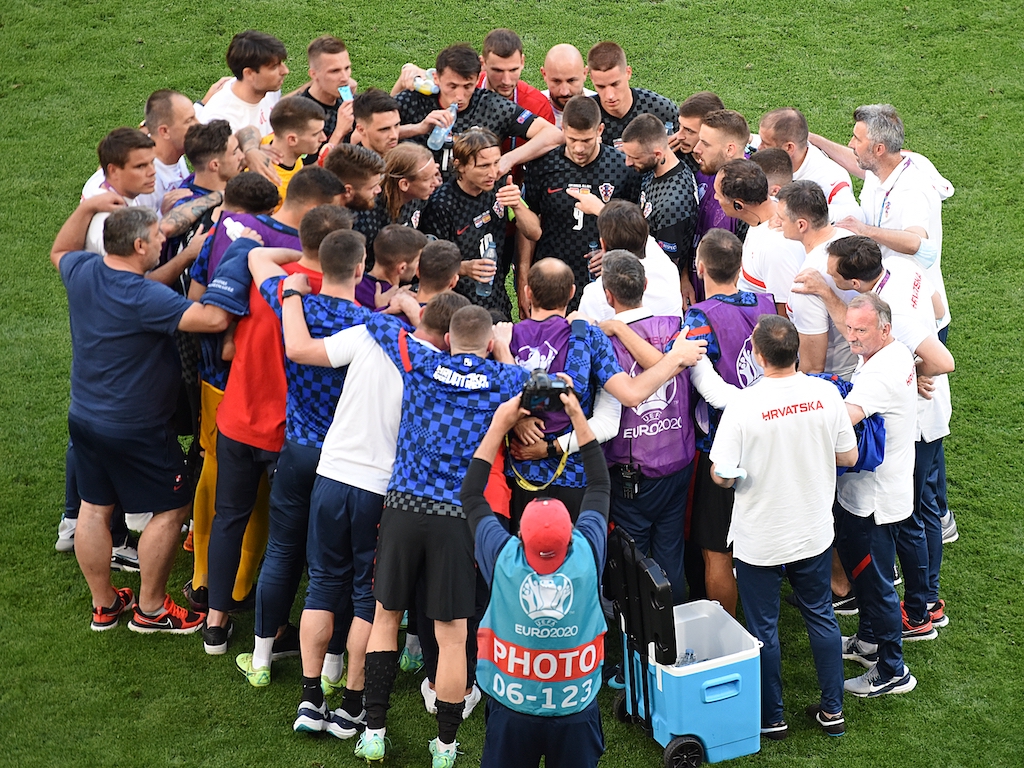Exploring Zagreb County: Nomading in Samobor and Tihocaj, Zumberak Nature Park
June 29. 2021 - Zagreb is much more than a city, as participants of Zagreb Digital Nomad Week found out on the last day on aa tour of the county to Samobor and Tihocaj in Zumberak Nature Park.
After a stimulating and intense week of keynote speeches, panel discussions, networking and socialising, the final day of Zagreb Digital Nomad Week on Sunday took participants out of the city to explore Zagreb County.
The day, organised by the Zagreb County Tourist Board, is a continuation of the successful partnership with the Zagreb City Tourist Board on the Around Zagreb project, an attempt to showcase the natural, cultural and adventure options available in the county a short distance from the city.
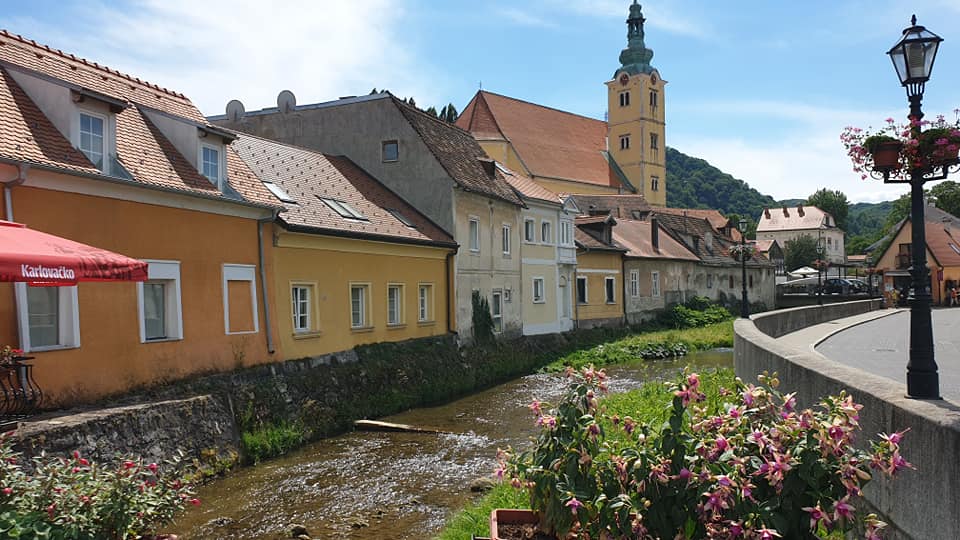
The intense heat necessitated a shorter day, but where better to start than historic Samobor, a delightfully charming old town a short drive west of Zagreb. And for all its historic charms, it was the natural ones that were the biggest initial attraction - the cooling air and spectacular nature along the river were a delight.
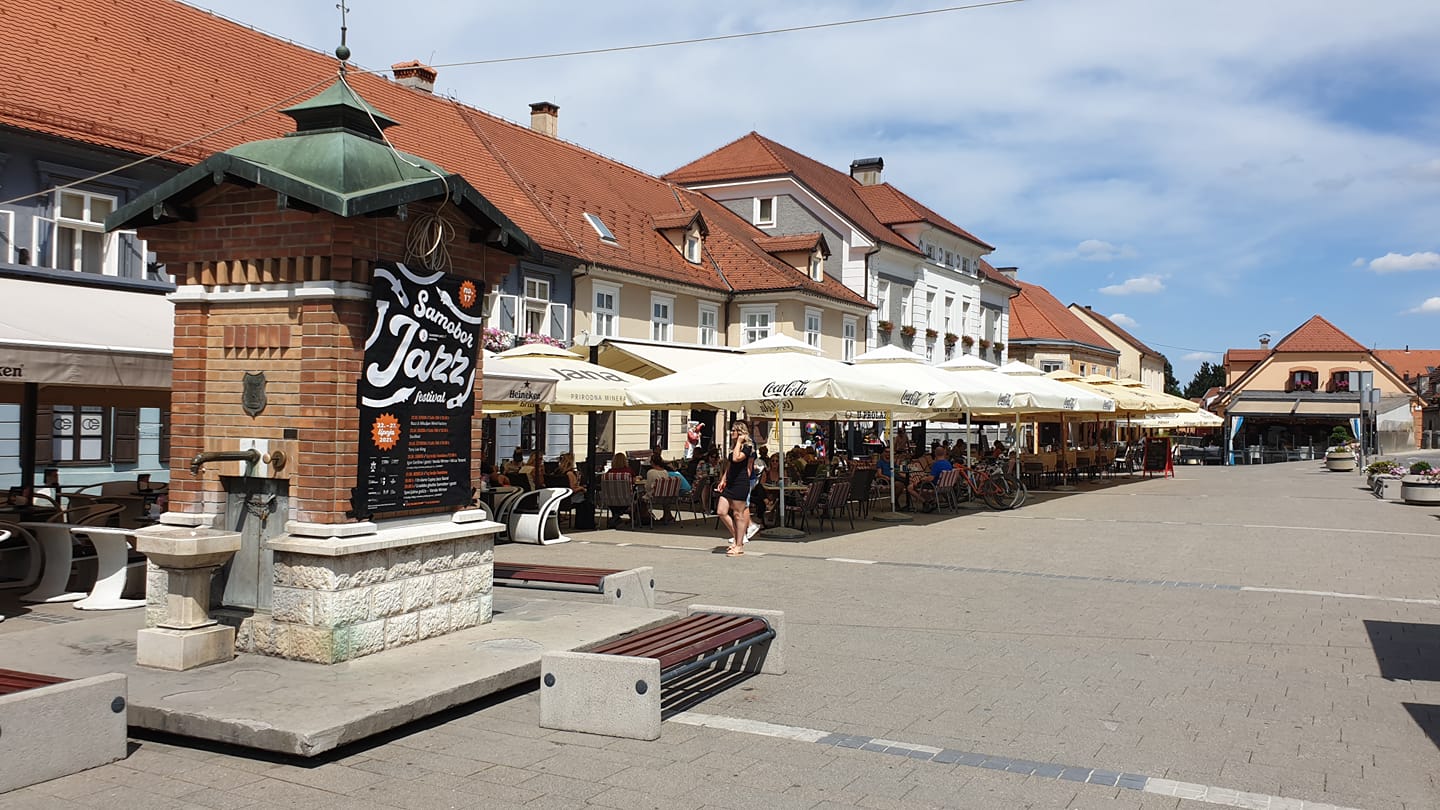
The main attraction and centre of life, however, is the delightful main square of Samobor, which is an excellent event venue. The Samobor Jazz Festival is currently taking place for a month.
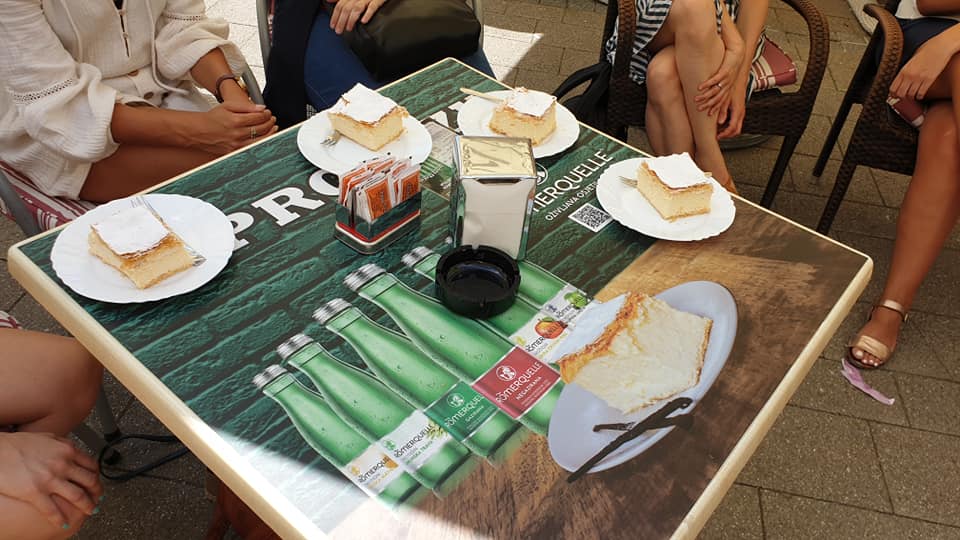
And if there is one thing you must try when in Samobor, it is the famous Kremsnita, a deliciously light dessert for which the town is rightly famous. The visiting digital nomads needed no second invitiation.
To learn more about Samobor, check out the Total Croatia guide, Samobor in a Page.
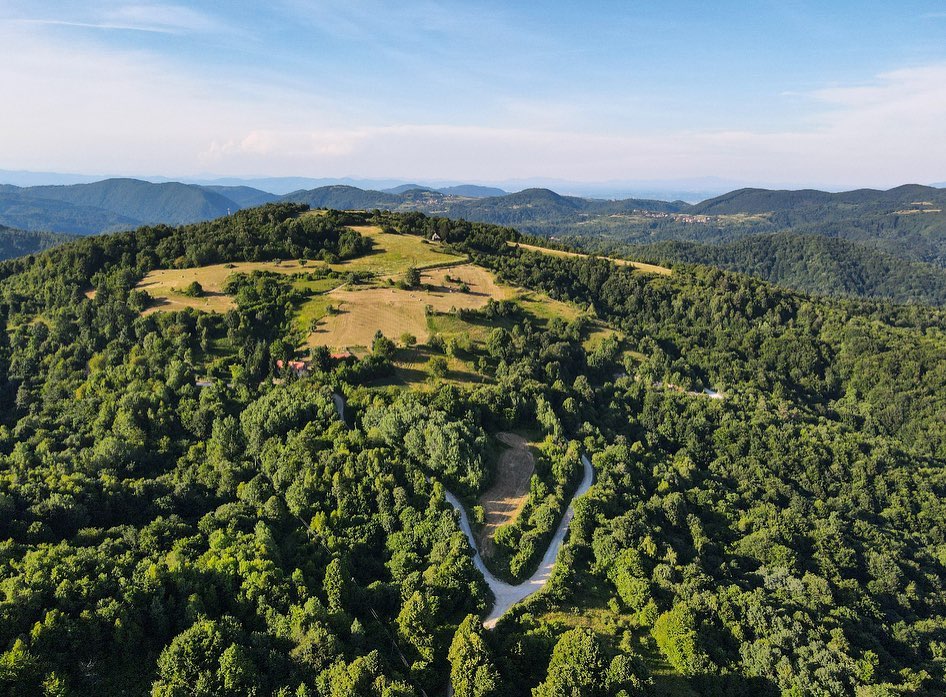
The main attraction of the day, however, was a little higher up - the Green Hills eco-village in Tihocaj in Zumberak Nature Park. Tihocaj is home to, among other things, the first free-range wagju cows in Croatia. A village which has not seen cows for 40 years now has 7 black Japanese residents.
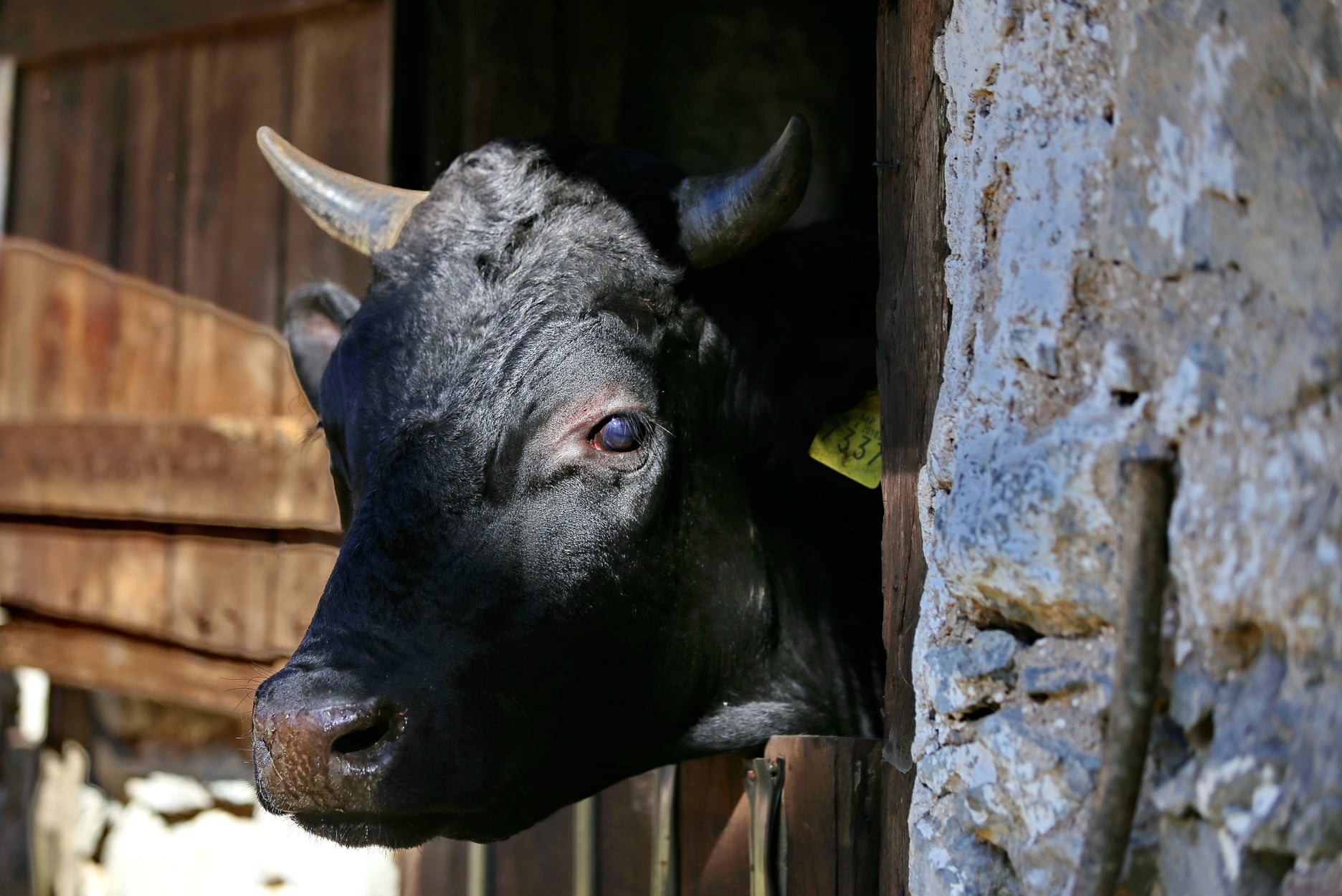
This unusual story is thanks to Nikola Bozic, the pioneering owner of one of Croatia's premier meat restaurants - Djurina Hiza in Varazdinske Topilce - who bought the cows in appalling conditions and brought them to the natural paradise of Zumberak Nature Park, leaving them free to roam in 20,000 m2 of pristine nature. You can learn more about their journey from Medjimurje to their new home in this TCN feature story on that journey - it was quite a day. Medjimurje to Zumberak: Transporting Croatia's 1st Free-Range Wagyu Cows.
Tihocaj has obviously been relaxing for Dougal the bull and his three female companions, for each has given birth to a calf within the first year.
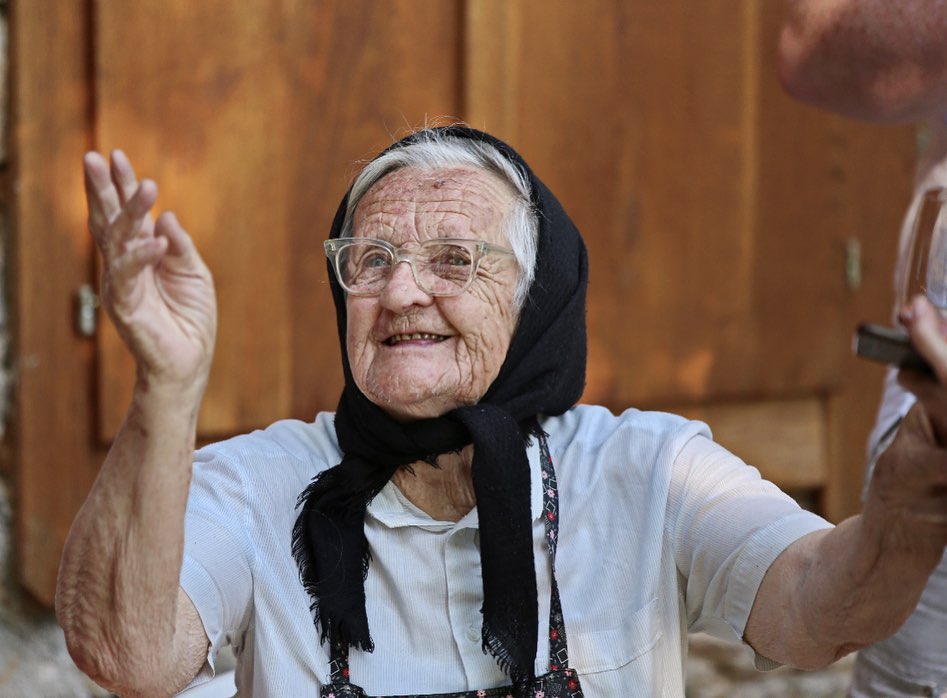
The only resident of Tihocaj today is Mare Gvozdanovic, who is 95. Mare has lived in Tihocaj for 50 years, and when she arrived, there were 150 people in the area, with plenty of children. The very remote spot is a divine spot, but far from local amenities. Mare lost her husband 4 years ago and now busies herself in the village, looking after her vegetable and talking to her Japanese four-legged neighbours, while enjoy the spectacular views and clean air.
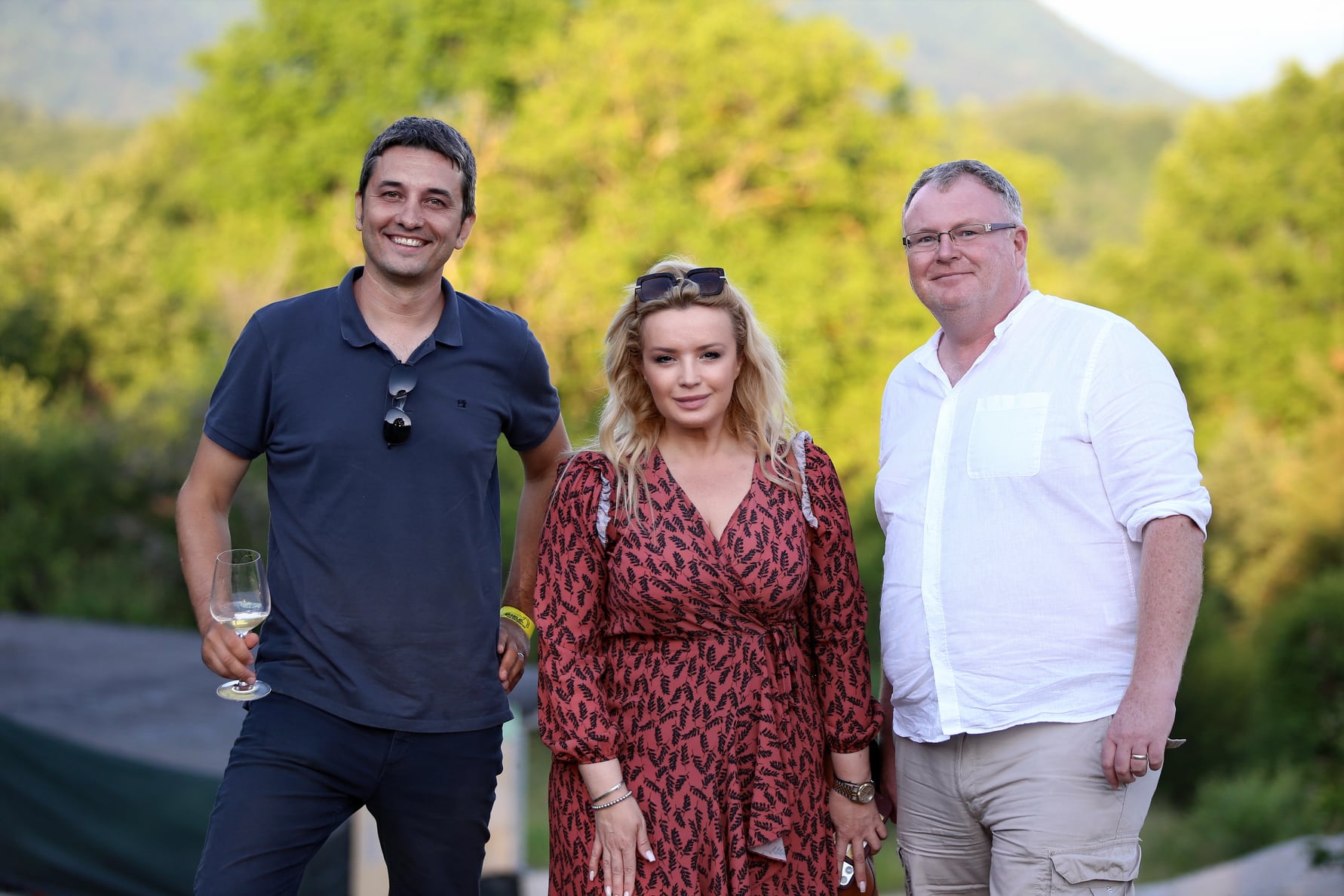
She will not be alone for long, for Tihocaj is home to one of the most interesting projects I have some across in Croatia. Local boy and serial entrepreneur, Davorin Stetner, our co-host - along with Ivana Alilovic, Director of the Zagreb County Tourist Board (seen with TCN above), has been buying the land and property in and around the village, while also creating an eco-farm.
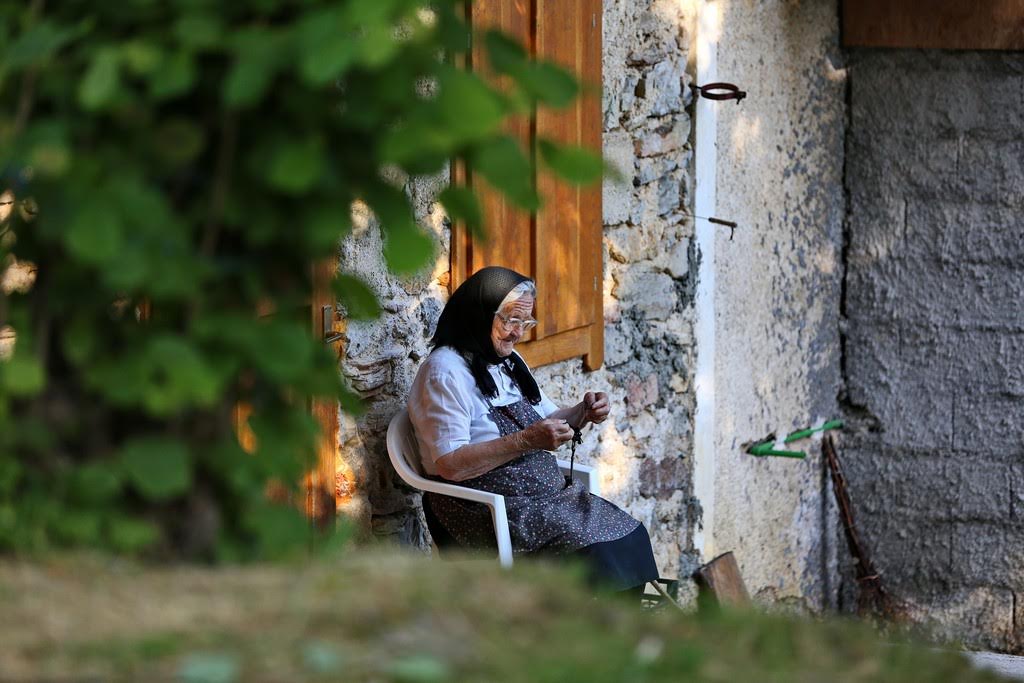
But this is no ordinary eco-farm, for it comes with its own helipad, high-speed Internet and (soon) swimming pool. The properties are being refurbished authentically, a wine cellar built, and there are no neighbours for miles.
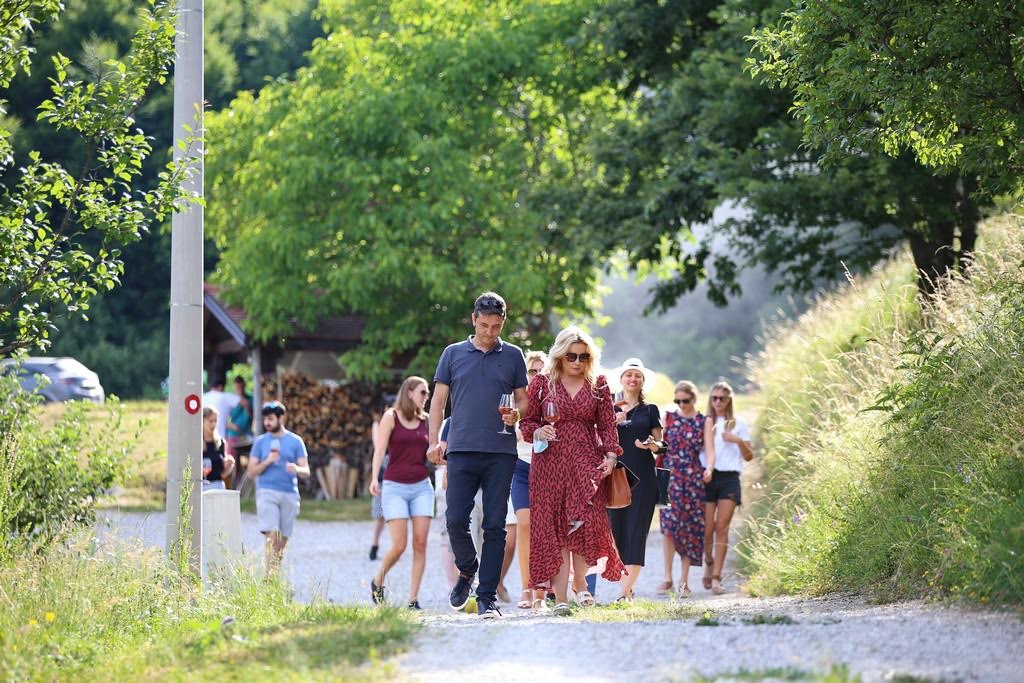
Perfect conditions, perhaps, for digital nomads wanting to work remotely in total peace, but connected to the world on their terms. There were plenty of murmurs of appreciation from the visiting nomads.
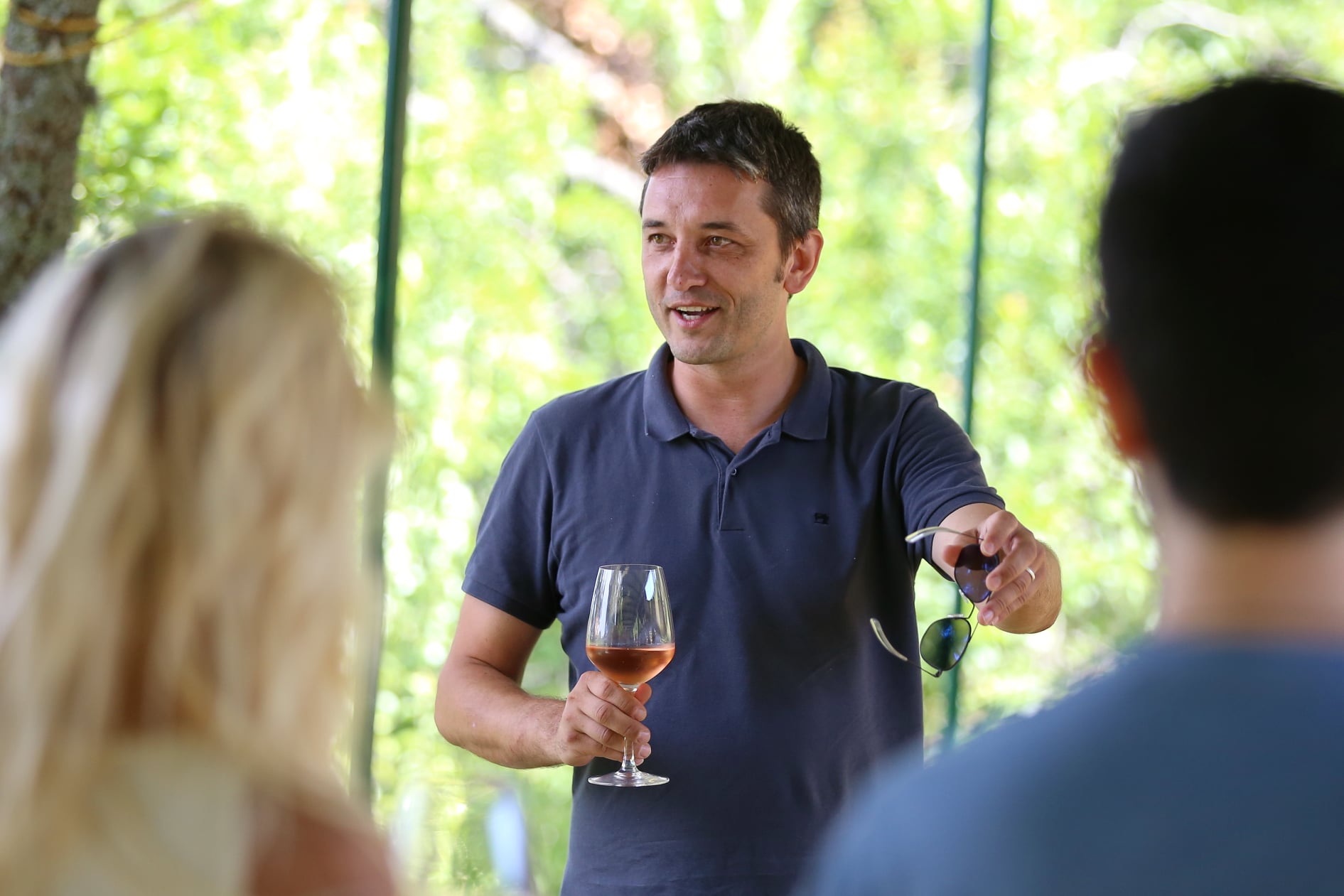
Stetner organised a wine tasting and barbecue for his guest, with music in the background. Private parties in total isolation.There have already been several helicopter visits and VIP guests. Tihocaj is very much a work in progress, but it is scheduled to open for bookings next year.
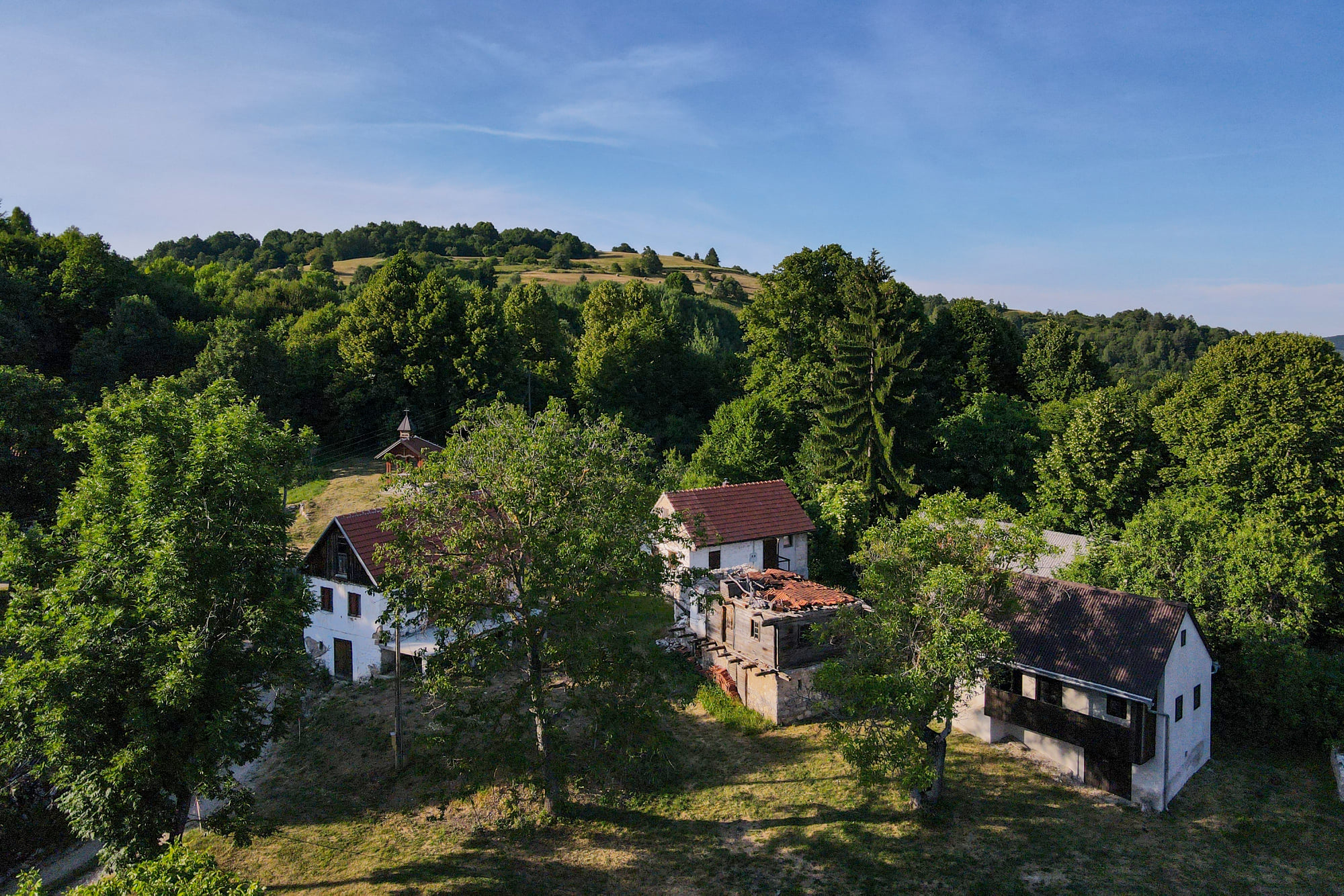
As excellent day to end a truly excellent week. The engagement from all the stakeholders was outstanding, and Zagreb truly shone. I was very pleasantly surprised at just how much the visiting digital nomads enjoyed the city. How digital nomad friendly is Zagreb? It seems from following the participants of Zagreb Digital Nomad Week 2021 that the answer is VERY!
Dean Kuchel of Digital Nomad World put it very well when asked what Zagreb is missing in this video interview.
"The only thing missing in Zagreb is more digital nomads."
To learn more about the charms of Zagreb County, click here.
More on Zagreb Digital Nomad Week.
For more news and features on digital nomads in Croatia, visit the dedicated TCN section.
Zagreb American Academy Offering Students Different Experience
June the 29th, 2021 - The brand new Zagreb American Academy, located in the Agram Business Centre (Poslovna) on Radnicka cesta, has something new to offer students in Croatia when it comes to learning.
As Poslovni Dnevnik/Lucija Spiljak writes, in the new school year 2021/2022 which is set to begin this autumn, the American Academy High School will start teaching for the first time in Croatia. The new Zagreb American Academy represents a network of American schools from Prague, Brno and Bratislava which unite with an individual approach to students and a high level of professionalism of teachers from all over the world.
Why exactly did they choose Croatia in which to expand their network and how exactly will the programme be conceived from September onwards? School principal Ondrej Lepka explains that they have been monitoring potential new markets across Europe where they could expand the network of international schools for some time now.
“Zagreb is a relatively large capital city with only two international schools, which is quite unique in the European context. Also many Czechs, including me and our senior management, have been to Croatia many times and we really love this country so it was an easy decision. We're happy to be able to bring our unique educational concept to Zagreb,'' Lepka stated.
The new Zagreb American Academy's target audience is students preparing to study abroad, but the principal points out that the facility is very much open to all students who want to attend an international high school in English, regardless of whether they will study abroad afterwards or not.
Their school is inspired by best practices from around the world, Yamini Singh explains, especially when it comes to North American and Finnish models, adding that the emphasis is placed on creating independent, critical thinkers who are fully prepared to be global citizens in the future.
“One of our main directions and the greatest benefit of the North American model of education is the freedom for students to choose and thus develop their own interests, without neglecting the basics. This approach results in well-rounded students who don't limit their studies to just one area. This is so important as the world looks to its increasingly complex future; students who focus on only one area of study will be at a disadvantage. We've now moved away from the ''old school'' method of teaching; it is no longer about memorising and repeating facts, but about real research and student-centered learning,'' explains Singh, adding that students will solve unexpected problems and develop their own projects.
She is also proud that their teachers, who are mostly of North American and Croatian roots, have extensive international and pedagogical experience.
For more on education in Croatia, make sure to follow our dedicated lifestyle section.
Croatian Dream Factory Creates Personalised Children's Books
June the 29th, 2021 - Croatian Dream Factory (Tvornica snova) is busy creating personalised children's books, a move they want to expand on a global scale with.
As Poslovni Dnevnik/Marta Duic writes, the Croatian Dream Factory is an unusual publisher that makes storytelling unforgettable through innovative technology. The business story of Andrijana Majstorovic and Goran Galetic began back in 2011, when no one in the market of Croatia or the immediate region was engaged in personalised children's publishing.
The first title they came up with was "Planet of the Dwarves", the first picture book in Croatia made with 3D illustrations. In addition to ten permanent employees, a number of external collaborators worked on the project, from designers to illustrators and programmers.
In 2020, they generated impressive revenue of 3.34 million kuna, which is growth of more than 25 percent when compared to the previous year, and their personalised picture book is "How did I come into the world?" became the first book of every fifth baby born in Croatia.
"Our plans are very ambitious, just like they have been ever since day one. In December this year, we're going to be celebrating the tenth anniversary of the founding of the Croatian Dream Factory. When we moved, literally from the garage, we never dreamed that we'd manage to gather a team of 25 people to create stories that now empower children and connect families and that our books would be the best-selling children's books in Croatia.
For the next ten years, we've set ourselves the goal of having a global presence by 2030. We don’t want to be just one of the players in this market of personalised children’s books that is in strong development, but as pioneers of that industry, people who have the know-how. By 2030, we see ourselves as global leaders in the sale and production of personalised children's books,'' says Goran Galetic, one of the initiators of the Croatian Dream Factory company.
As they point out, from the very beginning of the business they encountered numerous challenges, and for the first time they got stuck when they were looking for a partner in Croatia with equipment and machines who could print a book ''on demand'', which the personalised picture book required. They decided to start the project from their own workshop, bought bookbinding machines, prepared the first titles for sale, and then invested in a webshop.
A few years later, digital printing became much more accessible, and the development of the IT industry and new technologies created more new opportunities for the development of Dream Factory.
Back in 2015, Kristijan Vrbanic, an electrical engineer, joined the team, with whom they started the realisation of a new webshop with a software solution in the background. The idea was an interactive webshop, and thanks to this software solution, today a customer creates their own book in the ordering process.
“This year was marked by a complete redesign of the webshop, on which we've been working for the last year and in which we've invested over 350,000 kuna. We generate annual sales revenue of more than 3.3 million kuna, which we consider a very good result, given that we sell a very specific product. We have only nine items on offer and the majority of our income is related to sales concluded here on the Croatian market,'' explains Galetic.
In addition to Croatian, Dream Factory markets its products on the German and Austrian markets through the Fabelfeder brand, in Poland through the Magiczne pioro brand, and in Serbia through the Dream Workshop brand. Their plan is to expand to all European markets, as well as those of the US and Canada over the next two years.
“We're constantly investing in the development and improvement of the webshop and in the creation of new personalised books. There are currently three new books being made that will go on sale during 2022.
In the last two years alone, we've invested more than 750,000 kuna in the improvement of the webshop, the development of new personalisation functionalities, the development of new titles and redesign of existing ones, which represents strong capital for further business development and expansion into new markets,'' concluded Galetic.
For more, follow Made in Croatia.
Varazdin Hotel Turist to Open Doors Thanks to Spancirfest
June the 29th, 2021 - The Varazdin Hotel Turist, which is one of the most significant tourist facilities in the town, has faced some questions of late. It seems that despite rumors, it will not be altering in any way and will soon open its doors to visitors once again.
As Poslovni Dnevnik/Darko Bicak writes, following a change in the ownership structure of the most important tourist accommodation facility in this Northern Croatian town, the Varazdin Turist Hotel, at the end of last year, there was a fear in the baroque city that they could be left without significant accommodation capacities because the new owner allegedly planned to turn it into a retirement home.
Late last week came information that the hotel should open its doors soon. Namely, as the new mayor of Varazdin, Neven Bosilj, said, the Varazdin Hotel Turist will be in function for Spancirfest, and the new rooms will have 4 stars.
“I spoke to Darko Kisicek, the new owner. We talked about the opening of the Varazdin Hotel Turist, the full arrangement of which is set to be completed over the coming days. It will be a capacity increase of 60 rooms with 120 four-star beds. It has been promised that for Spancirfest, the hotel will be operational, so we'll have increased capacities for receiving foreign guests,'' said Mayor Bosilj.
He adds that he doesn't know whether the renovated space will be a nursing home, a senior hotel or something else, and that he doesn't want to enter the business policies or plans of the owner.
The Varazdin Hotel Turist is otherwise the largest hotel in all of Varazdin, which has been operating since 1964, and was privatised in 1991. For the next 30 years it operated under the ownership of the Bek family. Its capacity was 174 beds in 46 single and 58 double rooms, and the hotel has become well known for its conference facilities over recent years because it could accommodate about 500 guests in its halls. Before the coronavirus crisis struck, it employed 69 employees, and in 2019 it had a revenue of 16.2 million kuna.
At the end of last year, the Varazdin Trading Company (TPV) took over the ownership of the Turist company, which manages the Varazdin hotel of the same name.
For more, follow our business section.
Croatian Hospitality Facilities Desperate for Staff as Pandemic Takes Toll
June the 29th, 2021 - Croatian hospitality facilities and their owners are desperate to find waiters, waitresses and other such staff as the pandemic sees many individuals formerly employed in the trade seek more secure employment owing to lockdowns and layoffs.
As Poslovni Dnevnik writes, the cry of one utterly desperate Croatian hospitality facility owner from Pula states that 1000 kuna is on offer as a gift to anyone who can find him a waiter for the season.
Although the season has already begun, and there are more and more tourists in Pula, Croatian hospitality facilities are looking for trained waiters. This owner was left without a waiter one morning because they simply didn't show up for work after a stormy night. New ones are hard to find, so they're waiting for workers from Serbia for whom the dreaded paperwork is still being dealt with by MUP.
Although many expected that because of the pandemic, we'd be falling over would-be local employees for Croatian hospitality facilities because many have returned home from working abroad, and that employers might take advantage of this situation by diminishing their rights, the total opposite has happened. Amazingly, this year there is a shortage of domestic labour on the market, writes Deutsche Welle.
From the beginning of the year to June the 16th, the Ministry of the Interior (MUP) issued 31,157 residence and work permits for third-country nationals, 13 percent more than last year during the same period, but also a fifth less than the year before. This year, 4,191 such permits were issued for work in the tourism and catering industry alone.
"Although some workers returned to Croatia due to the pandemic, there is still a noticeable shortage of labour in some industries, especially in tourism and catering, construction, and there is a lack of craftsmen such as electricians and locksmiths. From March 2020 to the end of May this year, public authorities paid more than 10.5 billion kuna for the salaries of more than 680,000 workers through job preservation support measures. Those measures cover more than 120,000 craftsmen and employers,'' explained Kresimir Sever, President of the Independent Croatian Trade Unions.
As a result of the ongoing coronavirus crisis, trade unionists have faced various abuses by some employers: from forcing workers into taking their annual leave, the non-payment of the corresponding difference between the contracted salary and paid state aid, to the reduction of the contracted salary without employee consent.
For more, follow our business section.
PM: Four Big Projects Will Be Realised, Reforms Continued in Next 3 Years
ZAGREB, 28 June 2021 - Croatia will realise four big projects in the next three years, the Pelješac Bridge, joining Schengen and the eurozone, and buying fighter jets, and will also use them for the necessary reforms, Prime Minister Andrej Plenković said on Monday.
Croatia's road to independence was difficult, but the years ahead will not be easier if we don't prepare for the world that is coming, he said at a conference on Croatia's key successes, organised by Hanza Media on the occasion of Croatia's 30 years of independence.
Plenković said the government's ambition was to join the eurozone on 1 January 2023 and that the multipurpose fighter jets would arrive in early 2024.
Health reform framework in the autumn
"Reforms are key" and all that we have now are remnants of past administrations, policies, circumstances, weaknesses as well as daring, he said.
He singled out the judicial reform, resolutely stating that "the judiciary is not the HDZ's."
State administration will be strengthened because it must be more efficient, counties will not be changed but there is room to merge municipalities, which will cut costs, Plenković said.
The privatisation of the state-owned portfolio will continue while advancing corporate management, he said, also underlining the importance of education and health reform.
Healthcare has generated enormous expenses for years, but there is a concept of a solution which should be hammered out in the near future, Plenković said, adding that many laws would be amended in the autumn to make it easier to run the health system.
He said it was necessary to make progress in demography and also highlighted climate change.
"It would have been better had we solved some things faster," he said, but added that with "these three to four steps we will do in the next two and a half years, and (with) the money we ensured for the next ten years, we have indeed created prerequisites for development that we never had."
Vaccination is also an economic issue
Plenković called on citizens to get vaccinated against COVID-19, saying it was also an economic and financial issue, and that the tourist season could be lost if Croatia was declared unsafe.
He said it was a matter of personal responsibility and warned about the threat of new variants and a fourth wave of coronavirus.
Croatia's road to independence was difficult and demanding
Looking back over the past 30 years, Plenković recalled that Croatia had been a victim of Greater Serbia aggression but that it managed to build an army and defend its freedom.
He said the 1991-95 war claimed many lives and caused big destruction, which cost Croatia 15 years of development because pre-war GDP was restored only in 2004. He said 15% of homes were destroyed, that the war damage amounted to 160% of the pre-war GDP, and that over 150,000 houses were rebuilt after the war.
Plenković said the second decade of Croatia's independence saw the beginning of economic transition and key steps towards the realisation of geostrategic goals, including joining NATO in 2009 and completing EU accession negotiations by the end of 2011.
Those were years of strong GDP growth, but will lots of borrowing, followed by the global crisis which lasted until 2013, when we joined the EU, a historic success, he said.
He added, however, that Croatia started utilising the benefits of EU membership only in 2016 because only 9% of the funds available had been contracted by then, as against 120% now.
Plenković said that between 2012 and 2015 Croatia fell from 61 to 60% of the EU's GDP average, while in the past five years, before COVID-19, GDP per capita was raised to 65%, falling to 64% now.
He said that in the past five years quality of living had improved, with considerably higher wages, pensions, and social and maternity allowances. The average net pay in that period went up by HRK 1,440 to 7,082 this past April, while the minimum net pay went up by HRK 904 to 3,400, he added.
Speaking of employment, Plenković said the number of pension insurees fell by 90,000 between 2009 and 2016, while going up by 134,000 to over 1.5 million in the past five years.
He said the biggest problem of his first term in office, from 2016 to 2020, was saving the Agrokor conglomerate from bankruptcy, adding that the Petrokemija company was restructured and shipyards' debts were settled during that term also.
He recalled that for the first time, Croatia had a budget surplus for three consecutive years. "Before the pandemic, we relieved the corporate sector by more than HRK 11 billion in taxes and administration, the credit rating was raised to investment level."
Strong international position
Plenković said Croatia had a strong international position and that EU funds helped to carry out strategic projects such as the LNG terminal on Krk island.
He said he expected the U.S. to waive visas for Croatian citizens this autumn, also because of the good political and military ties.
He said good relations had been built with China and that China helped Croatia a lot at the start of the pandemic.
Plenković went on to say that Croatia had secured another €25 billion from the EU for the next ten years, and that it was in a more difficult situation than others because of the two strong earthquakes that hit last year.
The COVID crisis has cost us HRK 34 billion, he said, adding that unlike Croatia other countries did not have HRK 128 billion in earthquake damage.
We have ensured HRK 11.1 billion for wages and 700,000 jobs have been retained in the past 15 months, he said.
The National Recovery and Resilience Plan was made for green and digital transition, he said, confident that the realisation of the measures contained therein in the next two years would ensure an additional GDP growth of 1.4%.
For more on politics in Croatia, CLICK HERE.
Croatian Free Divers Win Three Golds, Two Silvers at World Freediving Championship
ZAGREB, 28 June 2021 - The Croatian national freediving team won three gold medals and two silvers at the World Freediving Championship, held in Belgrade on June 21-27.
The most successful Croatian free diver was Mirela Kardašević, who won a gold medal in the Dynamic Without Fins (DNF) discipline, with a 191-metre swim, a silver in the Dynamic With Bifins (DYNB) discipline and a 232-metre swim, and another silver in the Dynamic With Monofin (DYN) discipline and a 256-metre swim. All the results are national records.
Male free diver Vitomir Maričić won a gold in the Dynamic With Fins, while another male free diver, Vanja Peleš, won a gold in the Dynamic Without Fins, with a 226-metre swim, setting a national record.
For the latest news from Croatia, CLICK HERE.
30th Anniversary of ZNG 106th Brigade and Day of Osijek Defenders Marked
ZAGREB, 28 June 2021 - A special event was held at the Croatian National Theatre in Osijek on Monday to mark the 30 anniversary of the founding of the Croatian National Guard 106th Brigade and Day of Osijek Defenders, with President Zoran Milanović saying that there is no danger that Croatia will forget those events.
Addressing those present, President Milanović underscored that a few people had the courage to defend the country with arms, and without them Croatia would not have been victorious.
He said that there was no danger that those events would be forgotten, not because 30 years had passed but because those events were constantly being talked about, debated and evaluated.
Milanović underscored that the truth may hurt, but that no one should be ashamed of the truth." "Ours hurts, because it was painful and deadly. It killed many people and traumatised many... but we need not be ashamed but should be proud of it," he said.
"The mistakes on that path happened due to negligence or human traits which we will never get rid of, because of greed, envy or hate towards one's neighbour. That has been penalised, debts have been paid and I think that it is high time to stop questioning those things. That in particular refers to the fantasies, illusions, delusions, crimes and other faults of our grandfathers and great grandfathers of 80 or 100 years ago," underscored Milanović.
Anyone who spent the war in an office is not a defender
He sent a message to Croatian defenders to preserve their status, noting that they risked their lives and there were not many of them.
"Mind your status because not everyone can be a defender. Someone who spent the war in an office is not a defender. He can be and is a Croatian patriot, a loyal and well-meaning citizen of this country but your worth lies in the fact that there are not many of you," underscored Milanović.
For more news from Croatia, CLICK HERE.
EURO 2020 Round of 16: Croatia Eliminated After Losing to Spain in Extra Time (3:5)
June 28, 2021 - Croatia has been eliminated after losing to Spain (3:5) in the EURO 2020 round of 16 in Copenhagen on Monday.
Croatia and Spain met in Copenhagen on Monday for their EURO 2020 round of 16 match. The match was played at Parken Stadium and officiated by Cuneyt Cakir from Turkey.
Unlike the group stage, Croatia had the support of many fans, with over 5,000 estimated at Parken Stadium today.
Slobodan Kadic
Lineups
Croatia: Livakovic, Juranović, Vida, Ćaleta-Car, Guardiol, Modrić, Brozović, Kovačić, Vlašić, Petković, Rebić
Spain: Simon, Azpilicueta, Garcia, Laporte, Gaya, Koke, Busquets, Pedri, Sarabia, Torres, Morata
Slobodan Kadic
Spain possessed the game at the start and even had an early chance approaching the 2nd minute. Livaković was there for an easy save.
Spain had another chance in the 5th minute which they missed in front of the goal. Croatia tried a quick counter but Kova played it out.
Croatia was shaky in the first 10 minutes, which Spain used to calmly and confidently play the ball up the pitch.
Gvardiol stopped the Spain attack with a ball to Petković who was fouled by two Spain players for a free kick.
Spain had another dangerous chance in the 12th minute but shot outside the net. Rebić tried to find Vlašić at the top of the box in one of Croatia's few attacks of the half thus far, but the Spain defense had no issues retaking possession.
Slobodan Kadic
Livaković made the one-footed save of the tournament in the 15th minute, and with the help of Gvardiol, the ball went out for a corner.
A quick Croatia counter-attack in the 17th minute saw quick one-twos between Gvardiol, Petković, Brozović, and Vlašić but no progress was made. Croatia was saved by the hand of Livaković yet again two minutes later.
But a catastrophic Spain mistake put Croatia in the lead one minute later - and it was 1:0 Croatia thanks to an own goal in the 20th minute!
The goal gave Croatia just the momentum they needed as they continued attacking in the 5 minutes that followed. Rebić was taken down in the box which Croatia called for a penalty (with no luck), and Vlašić hit the side netting moments later.
Vlašić dribbled through the Spain midfield to find Kova who shot just over the post.
A corner for Spain in the 31st minute was the biggest threat they had since the beginning of the half. Another Spain corner in the 36th minute resulted in a shot *almost* on goal, but it went out for a Croatia goal kick.
A series of shots on goal and incredible saves by Livaković ultimately became too much for the Croatia defense, and Sarabia equalized for 1:1 in the 38th minute.
Spain had two corners in the 41st minute - the latter of which was cleared by Rebić's head.
Juranović had a good cross into the box with two minutes to go in the first half but the Spain keeper stopped the play. Kova played the perfect through ball to Rebić one minute later which was only just too quick for him. Morata tried putting Spain ahead moments later but shot over the goal.
The match ended 1:1 at the half.
Dalić made one sub to start the second half - Kramarić came on for Petković.
A Spain free kick from 30 meters out was cleared by Vida three minutes in. Vlašić tried for a quick Croatia counter once the ball was cleared but took a long first touch.
Brozović switched the pitch to find Juranović who attacked up the right wing, cut in, and tried finding Kramarić.
Spain maintained possession again for the first 10 minutes of the second half. A cross from the left found the head of an unmarked Azpilicueta in the box for the Spain lead. It was 1:2 for Spain in the 57th minute.
Rebić just didn't have it this time, and after missing a great chance on the left side, Dalić subbed him off Mislav Oršić in the 67th minute. With just under 25 minutes to go, the Croatia fans grew even louder.
Kramarić was one-on-one with the keeper one minute later which was called offside.
Spain subbed off Sarabia for former Dinamo star Dani Olmo, and Garcia for Torres in the 70th minute. A Spain goal was called offside a minute later.
Slobodan Kadic
Dalić went in with yet another offensive sub, this time calling off Juranović for the fresh legs of Josip Brekalo. There were 15 minutes to go.
A quick Spain free kick from the midfield line found Torres unmarked on the right side. He scored for 1:3 Spain in the 77th minute.
Dalić made two more subs - Budimir came on for Kovačić and Pašalić for Vlašić.
Slobodan Kadic
A mixup in the Spain defense and a series of blocked shots in front of the goal saw Oršić score for 2:3 with 5 minutes to go!
The ref added 6 minutes to the end of the match. Kramarić had a shot on goal which was called offside.
But then it happened - Croatia came back to equalize in the 2nd minute of added time - Pašalić scored for 3:3! The match went to extra time. Two 15 minute halves were played.
Slobodan Kadic
Croatia had a great attack in the first minute and Oršić just shot over the goal! Another huge opportunity for Croatia came in the 95th minute with multiple shots on goal all saved by the Spain defense.
Not long after, Morata was found alone on the far post to score for 3:4 in the 100th minute.
Busquets was subbed off for Rodri in the 101st minute.
Kramarić had a shot right at the keeper in the 102nd, which wasn't enough. Spain came back to score again for 3:5 in the 103rd.
The second half of extra time started with a stellar through ball by Oršić to Budimir who shot just wide of the goal. But there was not much time left for Croatia to get two goals...
Dalić subbed off Modrić for Ivanušec in the 113th minute. Spain attacked in the final minutes, hindering Croatia from making it past the midfield line. It was a decent effort from Croatia, but not enough.
The match ended 3:5 for Spain.
Spain plays against the winner of France and Switzerland, which we will find out tonight from 9 pm.
To follow the latest sports news in Croatia, follow TCN's dedicated page.
To learn more about sport in Croatia, CLICK HERE.
Milanović: HDZ in Conflict of Interest Regarding Supreme Court President
ZAGREB, 28 June 2021 - President Zoran Milanović repeated on Monday that he considered the ruling HDZ party to be in a conflict of interest regarding the election of the Supreme Court president because proceedings against the party for "the crime of plundering the state" were underway at the Supreme Court.
"They (HDZ) care very much about who is at the helm of the Supreme Court. That person can always have a certain amount of influence, that's why it is a problem, and the HDZ is in a conflict of interest," Milanović said.
Addressing reporters after a commemoration for Croatian defenders in Osijek, Milanović said that there were not many candidates for the Supreme Court president who would not tolerate intimidation like his candidate Zlata Đurđević.
Public call unconstitutional, harmful, unintelligent
As for the public call for the post of the Supreme Court president, which is advertised by the State Judicial Council (DSV), Milanović said that "it is an unconstitutional category, very harmful and unintelligent" because it had transpired that it had to be repeated.
"That makes it impossible for me to, in a way, reach prior agreement on the candidate with the main stakeholders - the president of the biggest party, the HDZ, and some other people in the parliament. If we have a public call, all that is left for me to do is to pick a person who has applied to the public call," said Milanović.
Otherwise, the entire concept of public call is a mockery, he said, adding that with a public call there were no prior agreements.
"Politics requires a degree of intelligence that is higher than room temperature," he said, adding that this referred to all those involved in the amendment and adoption of laws that were contrary to the Constitution.
He repeated that the Courts Act was amended to restrict the powers of the president of the republic, not his but his predecessor Kolinda Grabar-Kitarović's, in which process damage was caused.
"We now have something some call a constitutional crisis, and I call it a crisis of legitimacy. The person who will now stand in (as Supreme Court president) does not have any legitimacy. That is some judge on whom agreement has been reached in line with the annual work schedule," he said.
For more news from Croatia, CLICK HERE.


